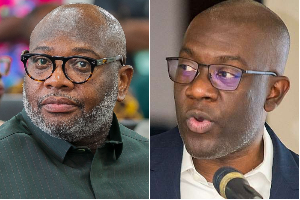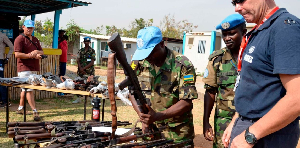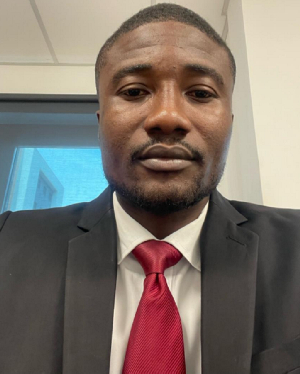A panel at the ongoing national consultative dialogue on small-scale mining has recommended private sector investment in geological investigations as part of measures to formalise the mining sector.
They argued that the current model where government was the sole investor in geological investigations was not sustainable and has not helped in building the sector into a business entity.
The panel included; Sulemana Koney, Chief Executive Officer, Ghana Chamber of Mines; Martin Ayisi, acting Chief Executive Officer of Minerals Commission; Nii Laryea Sowah, representative of the Media Coalition Against Illegal Mining, Ben Aryee, Advisor of Mines to the Minister of Lands and Natural Resources and Francis Opoku, Director of Finance, Association of Small-Scale Miners.
The event was held in Accra on the theme “Sustainable Small-Scale Mining for National Development”.
Opening the discussion, Mr Kone explained that private sector investment in geological investigations was more sustainable and would ensure another leg of Ghanaian participation in the mining industry.
“Currently, the government provides funding for geological investigations. But since the government doesn’t realise any gains from that, it is not encouraged to do it effectively as expected.
Private sector participation allows individuals and groups to invest their funds into such activities. This ensures a formalisation of that area of the sector and create businesses in the country,” he added.
Mr Kone said such a model could be effective through the establishment of regulatory institutions to ensure the protection of funds and urged for continuous training of regulators to improve their capacity.
Mr Ayisi said growing interest in small-scale mining required an upscaling of geological investigations to get more concessions for small-scale miners.
He said the Minerals Commission was working to remove delays and barriers in the acquisition of small-scale mining licence to encourage Ghanaians to pursue legal mining.
The inadequate enforcement of laws and regulations as well as the interference of very influential people in the operations of the Minerals Commission, Mr Aryee said, was responsible for the rise in illegal mining.
He said it was time for the formalisation of mining to make it attractive for more investment, and called for the involvement of appropriate technology for monitoring and supervision.
Mr Sowah decried the current licencing regime, saying it was poor and had encouraged illegal mining.
He called for an intense sensitisation on small-scale mining to make Ghanaians aware of the dangers in illegal mining.
Lack of access to mining concessions and poor implementation of mining laws and regulations, Mr Opoku said, accounted for rise in illegal mining.
He said the association would not relent in giving the government the necessary support to combat the menace.
Business News of Thursday, 15 April 2021
Source: ghanaiantimes.com.gh













